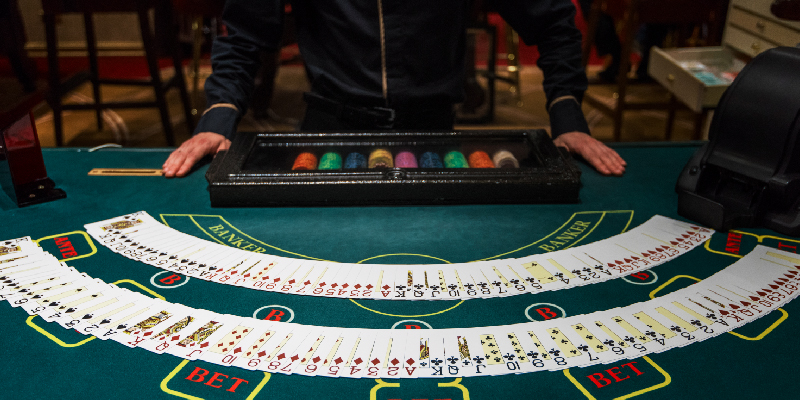How does Canada's tax law on gambling winnings compare to other nations?
If you’ve ever hit a big win in a casino, taxes probably came to mind. This is a normal reaction. However, not all countries are made the same, and depending on where you live, you might be giving a significant portion of your prize to the government. Luckily for Canadians, we have a somewhat lenient approach when it comes to gambling taxation.
But how do others compare? Well, according to the US Internal Revenue Service, total tax returns in 2019 included gambling-related winnings totaling more than $35.8 billion. That’s a staggering number. And it could be something that Canadian legislators will turn their eye to in near future.

A player’s paradise?
If you’re a casual gambler based in Canada, you can breathe easy. Winnings from games of chance are not considered taxable income. These are classified as "windfalls" or unexpected one-off gains. The Canada Revenue Agency (CRA) does not treat gambling as a business, unless you are actively and professionally profiting from it.
The line is a little more blurred for professional gamblers, though. If you earn a living through gambling by applying skill and strategy, you could be considered self-employed. This means that your wins are subject to taxation.
However, even in such cases, Canadian courts have been cautious. In one high-profile case, the Leblanc brothers were generating about $650,000 per year. They did it through structured sports betting systems. Despite their business-like approach, the courts ruled that the winnings were still tax-free, as luck played a significant role.
Each province oversees its own gaming regulations, but when it comes to federal taxation, the rule remains the same: recreational players don’t pay tax on their winnings.
The Ontario case
Canadian provinces have taken matters into their hands and have begun to regulate digital platforms. Ontario is leading the charge through iGaming Ontario, licensing platforms that meet strict safety and compliance standards. This shift brings transparency and legal clarity for players involved.
Platforms such as ComeOn online casino are fully licensed to operate in Ontario. These casinos offer Canadians a safe environment in which to play. And crucially, the tax-free nature of their winnings remains intact under current federal laws.
While online gambling laws vary across Canada, players in regulated provinces can enjoy modern platforms with legal protection. Without fearing tax bills. For now.
Gambling taxation in other countries: a global comparison
United States
The US is one of the strictest countries when it comes to gambling taxes. All gambling winnings, be it on a Vegas slot machine or at an online poker tournament, are considered taxable income. Winnings over specific thresholds require Form W-2G and federal withholding tax of 24%, which is often applied on the spot.
For international players (including Canadians), winnings in the US can be subject to a 30% withholding tax unless a tax treaty applies. It's essential for Canadians who gamble across the border to know they may not enjoy the same tax-free benefits abroad!
United Kingdom
In contrast, the UK follows a similar model to that of Canada. Players are not taxed on their gambling winnings – instead, the government taxes operators through mechanisms like the General Betting Duty. This tax policy encourages healthy market participation and ensures players keep their winnings.
Australia
Australia is yet another country mirroring Canada’s stance. Casual gamblers keep their winnings, tax free. However, if gambling becomes a profession, the tax status may change. Courts consider factors like regularity, skill and intention when determining if income tax applies.
Germany
In Germany, the policy is more nuanced. Casual winnings are generally not taxed, but professional gamblers can be subject to income tax and trade tax. Here, high-volume poker players may also be viewed as running a business and taxed accordingly.
France
The tax burden is largely on operators in France, with fixed percentages applied to different types of gambling activities. Players don’t pay direct taxes on their winnings, but the financial impact may be reflected in odds and rake percentages.
What Canada-based gamblers ought to know
For the most part, Canadians can enjoy their wins without worries. But if you're regularly profiting through strategy and volume, or gamble outside Canada, things change. Canadian residents who win in the US, for example, could be subject to an immediate withholding tax. In such cases, keeping accurate records and possibly filing for a refund under the Canada-US tax treaty becomes mandatory.
Still, knowledge is key. Whether you're spinning reels online or cashing out abroad, understanding how taxes apply could save you both money and stress. As the global gambling industry continues to grow, and more Canadians turn to online platforms, staying up to date on both national and international rules is important.
This is why we advise to stay local! At least for now.















